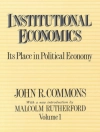Consecutive constructivism is a moral and political theory which mitigates structural injustice by securing individuals’ perception of private morality – that is, inventing procedural devices to make people enhance their moral consciousness – and, at the same time, encourages people to voluntarily concern themselves with procedural justice and public morality. The crucial reason for this position is that a detouring method of not directly dealing with the problem of justice but rather discussing the problem of morals is required to avoid the lucid criticisms of statists that the sovereign ruling states with authority or the world government does not exist. This book suggests a new approach to the problem of global justice, termed here "consecutive constructivism". It provides a way of coping with procedural justice at the global level, while also alleviating the problem of structural injustice insofar as it exacerbates procedural injustice. Acknowledging the fact that the discussion of global justice is difficult in a world constituted of lots of sovereign states, it sketches out a political theory which begins with the problem of morals and then consecutively moves on to the matter of justice. The result is a novel normative theory narrowing the gap between Neo-Westphalian and Post-Westphalian traditions.
Joon H. Chung
Global Justice and Consecutive Constructivism [PDF ebook]
A Political Theory in the Age of Global Environmental Crisis
Global Justice and Consecutive Constructivism [PDF ebook]
A Political Theory in the Age of Global Environmental Crisis
Köp den här e-boken och få 1 till GRATIS!
Formatera PDF ● Sidor 190 ● ISBN 9781443892414 ● Utgivare Cambridge Scholars Publishing ● Publicerad 2016 ● Nedladdningsbara 3 gånger ● Valuta EUR ● ID 5709950 ● Kopieringsskydd Adobe DRM
Kräver en DRM-kapabel e-läsare












